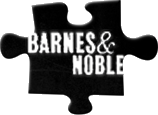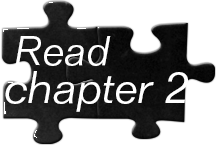October 9th, 2005
|
L |
arge red numbers flashed. The timer counted down: |
Twenty. |
Nineteen.
Eighteen.
The device swelled with power, set for a devastating burst. Amin chanted feverishly, prepared to ride its destructive wave to salvation. The counter hit ten.
Nine.
Eight.
Seven.
Amin drew a deep breath and held it. He closed his eyes and pressed his forehead against the timer.
Three.
Two.
The device sizzled like a match dropped in water. The fluorescent lights on the high ceiling sputtered out.
Amin el Fassid looked up just as the dark enveloped him. He was kneeling prostrate on his rug, facing toward Mecca and, incidentally, the large bubbling device in the middle of the basement floor.
The device was a bomb, a collection of chemicals and electronics. Although Amin had assembled it, he hadn't the faintest idea how it worked. What was clear to him—as the bomb's glowing display faded—was that it hadn't worked.
Amin blinked, hoping his eyes had made a mistake. The room remained dark, the bomb a silent shadow. His stomach trembled with panic. He was ready to die, but unprepared for failure. This dark room was alien and cold, and he was too far from the desert. Too far from home. His body shivered.
Amin clasped his hands together and squeezed reassurance into them. He forced himself to focus.
Still on his knees, Amin groped into the black air that surrounded him. His hands found a thin tube and traced it back to the bomb's core, a copper tub. The copper burned his fingertips. He ignored the pain, pressing his palm flat against the side. He could feel the liquid bubbling inside, but it was tapering off, growing still. He pulled his hand from the searing metal, moaning as much from failure as pain. At the very moment of his triumph, success had been snatched away.
He laid his stinging hand against the holy mark on his forehead. The mark was a waxy scar the size of a silver-dollar, creeping down from his turban, pale white against his dark leather skin. Allah put the scar there fourteen years ago, singling Amin out and giving him a destiny. The scar had brought him into the service of Il Siyâh and they had led him here, to this strange distant land. Tonight his destiny was to be fulfilled. He was to become a martyr the likes of which had not been seen since Sumayah herself. But now that was lost. All lost.
He rose to his feet. He wasn't a tall man, but the turban added inches. A full beard of black hair masked his face but for his brown eyes, which searched the dark room like those of an abandoned child.
He took a careful step, feeling with pointed toe, trying to remember the room so recently lit. His galabiyya, a simple robe, hung loosely over his wiry frame. It was damp with sweat and cold against the bare skin underneath. Two more steps and his foot knocked against something heavy. He brought his hand down, finding his duffle bag. He unzipped the top and dug through metal tools. At the very bottom, his hand closed around a cheap plastic flashlight.
The duffle had been prepared for him, but the light hadn't been included. He'd found it in the glove compartment of the van he used to transport the bomb here. His instructions had strictly forbidden him to bring anything not provided by his contact, but the flashlight looked useful so he brought it anyway. Allah favors the prepared.
He slid the switch, then banged it against his palm. He was rewarded with a dim orange light. It wasn't much, but he was glad to have it. He traced the light over the bomb. Its jumble of wires and tubes looked foreign to him now, like he'd never laid eyes on them before. A single bubble rose from the tub, its soft gurgle punctuating the silence. Amin tapped his index finger on the dull display, half hopeful, half helpless.
The flashlight faded. A small window, set high in the far wall, funneled faint light in from the sidewalk above. A metal grate secured the window, but a few hours ago Amin had sawed the lock off. He hadn't planned to need an escape route, but was thankful he had taken such precautions.
His eyes adjusted, bringing shapes out of the darkness. His nose caught the acid smell of burnt plastic. He followed it to his left, where the building's circuit-breaker panel lurked in the shadows. He took three steps and froze, foot hanging in mid-step. Something had tickled in his ear. He strained against the hollow silence, wondering if it was a noise or his imagination. But there it was again: distant footsteps.
He lowered his foot softly, holding his breath. He looked first to the staircase, framed in an open doorway, then to the bomb that sat in the center of the floor. Even in this dim light, it would be the first thing anyone would see. He had to hide it.
Against the wall, he saw a gap between two elephant-sized heaters. Their churning fans had fallen silent with the lights and their metal skins crackled as they cooled.
He knelt and tested the side of the copper tub; it had cooled enough to touch. He placed both hands against it, coiled his legs and pushed. The metal bent under his hands—sloshing liquid to the floor—but the tub didn't move. He cursed himself for assembling the bomb on the floor. If he had just set it on the rolling cart it would be easy to hide. Now the cart held nothing but empty bottles, their contents poured into the tub, making it too heavy to move.
It was too late for these thoughts, too late for anything but regret—and no time for that, either. The device was placed to achieve maximum destruction, not to avoid discovery.
The footsteps grew louder. Closer.
Amin's heart raced, pounding blood to his head. He yanked a white sheet off the cart and kicked it away, its wheels squealing against the concrete. He stretched the sheet over the bomb. In the dim light, it resembled a melted ghost.
The metallic clink of a door latch echoed down the stairwell. The beam of a flashlight danced in the doorway as feet shuffled down the steps. Amin heard whistling, someone bolstering himself against the intimidating dark basement. Amin reached under his arm and drew a heavy long-barreled revolver from its leather pouch. The gun was another thing he wasn't supposed to have, but he would no sooner have left it behind than come naked. He was calmed by the familiar supple wood handle, polished by the palms of three generations of his family.
Amin slipped across the room, flattening himself against the wall by the doorway. All fear was gone. He knew what he must do.
The whistling grew louder and the footsteps shuffled to its rhythm. Feet hit the landing and the light bounced upward, flashing in Amin's eyes, blinding him. His finger tightened on the gun's trigger, but he held back. A blind shot would be useless, dangerous. An instant later, the flashlight moved on. He hadn't been seen.
Orange spots obscured Amin's vision. He saw the shadow of a man, backlit by the oval beam of his flashlight. The whistling stopped when the flashlight found the bulging sheet. The man bent down and raised the corner.
Amin could wait no longer. He stepped forward, extended his arm.
"Qu'est-ce que c'est que ça?" the man muttered, inspecting a nest of plastic tubes.
Not trusting his eyes, Amin pressed the gun's barrel against the spine of the man's neck. The man jumped, first from the surprise and again from impact as the gun kicked a bullet into him.
The man crumbled forward, lifeless even before he slapped against the floor. The gunshot echoed, a tuneless requiem for an unknown man.
Amin stared dumbly at the body. Guns had been his whole life, but he'd never before killed a man. The gunshot's echo faded, replaced by yelling and scrambling footsteps. The door at the top of the steps was opened and a name was called down.
Amin made himself move. He holstered his gun and sprinted across the dark room. It was sheer luck nothing tripped him. He targeted the small window and leapt with all his strength. He body-slammed the wall with a grunt, but his hands found the windowsill and held him off the floor. Gripping with one hand, he flipped the grate up with the other. He got his shoulder under it and punched through the window. Glass tinkled outside, and cold fresh air poured over him.
Footsteps drummed down the stairs. Amin reached through the fractured window and grabbed the sill outside. Glass dug into his arm as he pulled himself up the wall. Shards of glass broke against his shoulders. His robe shredded and grew thick with blood. He ignored the pain.
When his shoulders were through, he set his palms flat on the sill. He locked his elbows to his hip, balancing his body above the tendrils of glass that could effortlessly disembowel him. He tipped forward, curled his body gracefully and rolled his legs out over his head. His feet came down on the hard cement of the sidewalk and he dropped into a crouch.
Panicked voices inside; the body had been found.
Though Amin stood in the middle of a city, the night air was fresh after so many hours of containment. He inspected himself. His arms and shoulders were lacerated, but his galabiyya was absorbing the blood; it wouldn't drip and leave a trail. Bending low, he dashed across the street. The road was abandoned. He ducked behind the row of parked cars that lined the far curb, using them as cover as he made his way down the sidewalk.
A cartoon of a well-fed maid in a skimpy outfit peered down at him from the side of a white van. Blue italic letters declared Premier Rang: Service de Ménage. A bubble rose from the maid's mouth, affirming, "Nous sommes au premier rang!" The company was real, but they knew nothing of this van.
Amin drew his revolver and flipped it around, holding it like a hammer. The barrel was warm as flesh, as if it had stolen not just the man's life, but his heat as well. He smashed the window, scattering gleaming chunks of glass over the bench seat. He popped the lock and slid over to the driver's side. The key was in the ignition, just as he had left it. The van started easily. He laid the revolver at his side and put the van into gear. Despite the urgency he felt, he kept his foot light on the gas pedal, steering the van into the street at a sluggish idle. He used the mirror to watch the empty street behind him as the vehicle puttered away.
Amin had no idea what to do next. He wasn't even supposed be alive, much less trying to escape. He decided to head to the DeGaulle airport, where he could park the van and come back into the city on the train. International flights arrived at all hours and he could use their crowds as cover. Then, once he was sure it was safe, he'd call in and confess his failure.
After two blocks, the van turned down a thin street, edging between the cars parked on either side. It puttered through two more byways and arrived at the bank of the Seine, the wide river that split Paris in two on its long journey to the English Channel. The van idled at the red light, then accelerated down the wide avenue that traced the river's edge. It blended anonymously into the city's traffic, which persisted even at this darkest of hours.
The clock atop the Musée d' Orsay watched the van pass like the eye of a giant. That eye had seen two world wars and tonight it had almost witnessed the start of a third. Hidden somewhere in the dark neighborhood behind it, a normally sleepy bank was a flurry of activity. Security guards were calling police, and the police, once apprised, were calling higher authorities.





text ©2009 Brett James